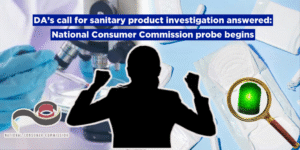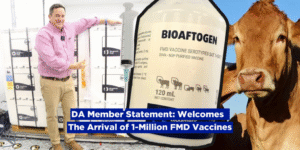Nelson Mandela Bay and the broader region continues to experience severe drought conditions, which have caused our dam levels to decrease to a worrying level of less than 12 percent combined – today our dams sit at a dismal 11.90%. I will thus be making regular updates such as this, to continue to inform residents of the dire situation and of the interventions the Metro is implementing.
The drought situation has been exacerbated by a number of factors; including the high level of domestic consumption, water leaks – especially in areas like schools – and the fact that the little rains that we have received over recent months, did not fall in our catchment areas or was too insignificant to make a difference to our dam levels.
This harsh reality has presented us with a very challenging situation, especially in areas like KwaNobuhle in Uitenhage and St Albans. There is a very high possibility that the City may run dry by July.
As one of the efforts to mitigate this catastrophic prospect, last week I announced that the City would be moving to Tariff C, which will result in high water users being penalized for their failure to adhere to watersaving measures. The decision to increase tariffs was not made lightly, as we understand that COVID-19 has caused a lot of devastation in the South African economy, leaving households and business with almost nothing to spare. However, we find ourselves in desperate times, which require desperate measures. The intention of the increased tariffs is to encourage water savings, not to punish our residents. This week I will carry out the planned visits to some of the Top 100 water users in the Metro – to bring about a culture of accountability regarding water saving. Throughout the prolonged drought, the City has
been engaging with different stakeholders, including business, the NGO sector and other government departments and entities to form partnerships so that we can work together to prevent a Dry July. We are grateful for the partnership with the Nelson Mandela Bay Business Chamber whereby their members will adopt schools and repair leaks in schools across the Metro.
Through the office of the Speaker of Council the Metro has requested the local Religious Sector to come on board and work with us to spread the message to save water. We need the Religious Sector to assist us on two fronts: firstly, through prayers; secondly, we need the religious leadership to assist us with the call to their respective congregations to decrease water consumption and inculcate a culture of water conservation.
Through intergovernmental relations, we continue to engage the National and Provincial government and the Department of Water and Sanitation for a disaster declaration, so that we can be in a position to move swiftly in implementing mitigation measures.
Some of the immediate interventions that the Metro has implemented to combat the situation include:
1. Stepping up water leak identification & repairs – I can proudly announce that in the last 7 days just
over 1000 leaks were repaired, this is the second week in a row that our teams have achieved this.
2. An intensified Communication and Awareness campaign including radio adverts and activations
with information sharing at Shopping Malls across the Metro
3. Operationalising the Impofu Dam barge to extract more water
4. Introducing the Grassridge Temporary Treatment Works to add 35 Ml/day to our water system
5. Maximising the Nooitgedagt Supply Zone: Phase 3 of which will be online by September 2021
6. Sinking Groundwater Boreholes to add 15 Ml/day by July 2022
7. The roll-out of flow restrictors, beginning with the top 100 high water users
8. Basic Water: Standpipes, Water Tanks and Water Trucks for areas that may run out of water.
9. Construction of a pipeline to connect KwaNobuhle to the rest of the Metro supply; completion of which is expected in November 2021.
Some medium- to long-term measures that the Metro has also embarked upon include:
1. The Coegakop Water Treatment Works, to add 15Ml/d by September 2022
2. The KwaNobuhle pump station, to be operational by July 2022
3. A Desalination plant at Coega (planned to be operational by March 2022) and another in the
planning phases, to be situated at Schoenmakerskop.
Below are some easy ways to reduce water consumption in your home:
• Non-potable water for activities such as construction is available free of charge at the Fishwater
Flats Waste Water Treatment Works
• Place a 2-litre plastic bottle full of water in the water tank of your toilet
• If it is yellow, let it mellow; if it’s brown, flush it down.
• When doing laundry, ensure that the machine is loaded fully before starting a cycle.
• When doing dishes, do not keep the water running to rinse.
• Use grey water for gardening purposes




